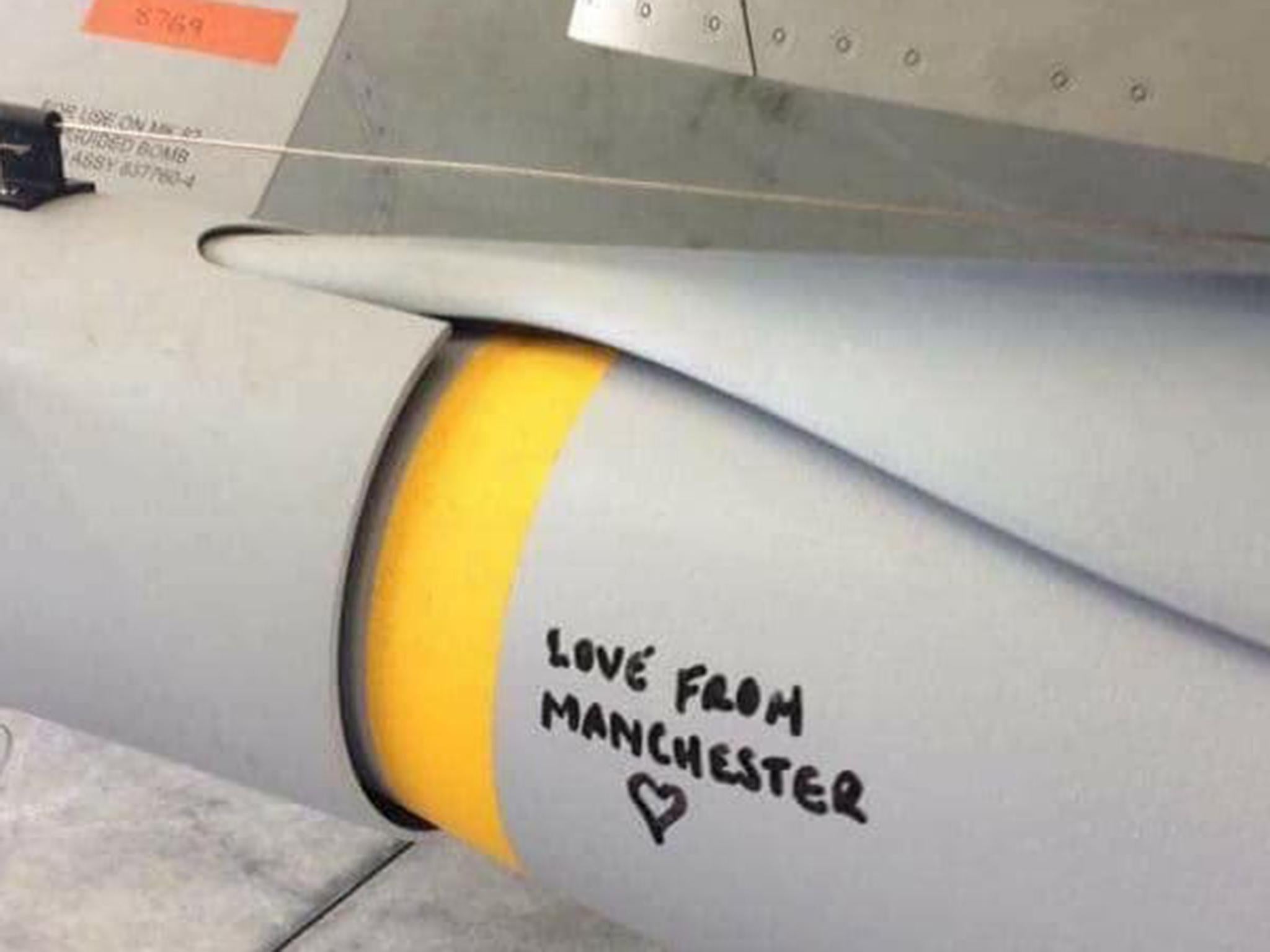London terror attack: Isis supporters claim atrocity was revenge for RAF 'Love from Manchester' air strike
Isis has claimed responsibility for the van and knife attack, which killed seven and injured 49

Your support helps us to tell the story
From reproductive rights to climate change to Big Tech, The Independent is on the ground when the story is developing. Whether it's investigating the financials of Elon Musk's pro-Trump PAC or producing our latest documentary, 'The A Word', which shines a light on the American women fighting for reproductive rights, we know how important it is to parse out the facts from the messaging.
At such a critical moment in US history, we need reporters on the ground. Your donation allows us to keep sending journalists to speak to both sides of the story.
The Independent is trusted by Americans across the entire political spectrum. And unlike many other quality news outlets, we choose not to lock Americans out of our reporting and analysis with paywalls. We believe quality journalism should be available to everyone, paid for by those who can afford it.
Your support makes all the difference.Isis supporters have claimed the London Bridge attack was carried out in revenge for RAF air strikes on the extremist group in Iraq and Syria.
Online posts celebrating the deadly van and knife attack in pro-Isis channels reportedly included the boasts alongside an image of a bomb with the words “Love from Manchester” written on it.
The photograph of the message on a laser-guided Paveway missile was confirmed genuine by the Royal Air Force in the days after the suicide bombing at Manchester Arena on 22 May that killed 22 people.
The bomb is said to have been loaded onto a plane at an RAF air base in Cyprus that has been used for air strikes against Isis. It is not clear exactly who wrote the words on the munition.
Rita Katz, head of Site, a US organisation that tracks the online activity of jihadist and white supremacist groups, said she had spotted a reference to the bomb’s message on pro-Isis social media channels after Saturday night’s van and knife attack in central London.
“Pro-Isis channels continue to celebrate London attack as ‘the black days we’ve promised’; ‘the wolves have awakened’ responding to Isis calls,” she wrote on Twitter alongside screenshots from the online groups.
One of the images shared by Ms Katz appeared to show the picture of the bomb with the words written on it with the caption: “This is your merchandise and tonight we responded”.
Isis has claimed responsibility for the terror attack, in which seven people were killed and 49 injured when three men rammed a van into pedestrians on London Bridge before stabbing revellers in bars in the nearby Borough Market.
A statement on the group's propaganda outlet Amaq said a “detachment” of its fighters had carried out the atrocity.
One of the victims was Christine Archibald, a Canadian woman who is believed to have worked in a shelter for the homeless until she moved to Europe to be with her fiancé.
The three perpetrators, who have not yet been officially named, were shot dead at the scene by police just eight minutes after the first emergency call.
Amaq's statement quoted 'sources', a phrase usually used for attacks inspired, rather than directly commissioned, by Isis.
The Islamist group, which also claimed responsibility for the Manchester attack two weeks ago, has called on its followers to carry out increased terror attacks around the world during the Muslim holy month of Ramadan.
Detailed instructions have been issued via propaganda magazines, videos and social media on how to launch mass casualty attacks using vehicles and knives.
Ms Katz said instant messaging app Telegram, where messages are heavily encrypted to ensure privacy to users, “must do more” to combat the proliferation of pro-Islamist channels on the platform.
“The amount of Isis and pro-Isis channels / chat groups on Telegram is simply overwhelming,” she wrote, adding that some “provide military manuals step-by-step”.
The Isis groups are “essentially research libraries for lone wolves, with back-ups, to keep their content available if channel is deleted,” she said.
Isis has lost most of Mosul in Iraq – the centre of the self-declared Caliphate since Isis captured the city in 2014 – which Iraqi security forces have been assaulting for seven months.
Militants are currently battling to hold the final Isis-controlled districts of the city, while an advance on its largest remaining stronghold of Raqqa in Syria is expected to start this summer.